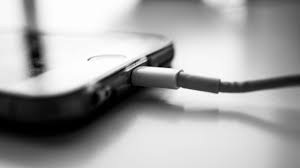Source: eurweb.com
*Big Tech soon may be asking people to opt into a nationwide tracking and data collection scheme to help public health officials predict the next coronavirus hotspot.
Amid multiple reports of foreign states like China and Israel using surveillance to suppress the spread of COVID-19, some U.S. experts are divided over whether individuals should give up their privacy to help contain the virus.
The Chinese government began requiring Chinese citizens to download new tracking software on their phones in February, which they use to update their health status, according to the state-run Xinhua News Agency. A person who updated her status to the color red, indicating she was sick, would not be allowed in public areas like subways or grocery stores.
This data was shared with Chinese police and used to contain the spread of the novel coronavirus and pinpoint virus hotspots.
At the beginning of April, U.S. tech giants Apple and Google announced a similar initiative with a key difference: It’s opt-in only, and any data they share with public health officials or the federal government will be made anonymous, or “de-identified.”
“Since COVID-19 can be transmitted through close proximity to affected individuals, public health officials have identified contact tracing as a valuable tool to help contain its spread,” Apple and Google said in a joint statement. “A number of leading public health authorities, universities, and NGOs around the world have been doing important work to develop opt-in contact tracing technology. To further this cause, Apple and Google will be launching a comprehensive solution that includes application programming interfaces (APIs) and operating system-level technology to assist in enabling contact tracing.”
Apple and Google plan to launch the APIs for iPhones and Android phones in May, and then launch “a broader Bluetooth-based contact tracing platform by building this functionality into the underlying platforms,” which they say will be more reliable than APIs.
Apple’s and Google’s tracing plan is legal and not mandatory.
A privacy-focused research and activism group, Electronic Frontier Foundation, said any and all surveillance tactics deter free speech and association. The group also pushed back on the idea that de-identified data protects individuals’ privacy.
“Re-identification of de-identified data is a constant infosec threat,” the foundation said. “De-identification of location data is especially hard, since location data points serve as identification of their own. Also, re-identification can be achieved by correlating de-identified data with other publicly available data like voter rolls, and with the oceans of information about identifiable people that are sold by data brokers. While de-identification might in some cases reduce privacy risks, this depends on many factors that have not yet been publicly addressed, such as the careful selection of what data to aggregate, and the minimum thresholds for aggregation.”
The foundation said governments need to prove the necessity of surveillance tactics to contain COVID-19 before they roll out these programs.
“Even if governments could show such efficacy, we would still need to balance the benefit of the government’s use of these powers against the substantial cost to our privacy, speech, and equality of opportunity,” the foundation said. “The population that carries a networked phone at all times is not representative of the overall population; for example, people without phones skew towards lower-income people and older people.”
Roslyn Layton, a visiting tech scholar at the American Enterprise Institute, thinks Apple’s and Google’s idea is a good one as long as it remains optional and not mandatory.
“The key difference with surveillance, is, it’s one thing when you agree to it, and that’s what these companies are offering, and we’ve been using Apple and Google for a long time so they’re trusted, and they’re also governed by the rule of law,” said Layton. “I’m a huge fan of (their plan), if we’ve learned one thing from this virus, it’s that the problem is not too much data, it’s too little. In this crisis, we need more data than ever. We need to agree for our data to be processed for a mutually beneficial reason. People like to use their data for social good.”
But the foundation worries that once this data is collected, it could easily be bartered and traded on a Big Data black market.
The foundation “has long opposed location surveillance programs that can turn our lives into open books for scrutiny by police, surveillance-based advertisers, identity thieves, and stalkers.”
Because the coronavirus is predicted to outbreak a second time in the U.S. later in the year, Layton thinks the opt-in tracking approach could be very valuable, and that individuals should consider it in the name of public health.
“Does that mean everyone has to participate and all your data becomes part of the state, no, it’s opt-in, you can opt-out, and it’s governed by laws which we have transparency about,” Layton said. “That, I’m personally comfortable with and can live with.”
